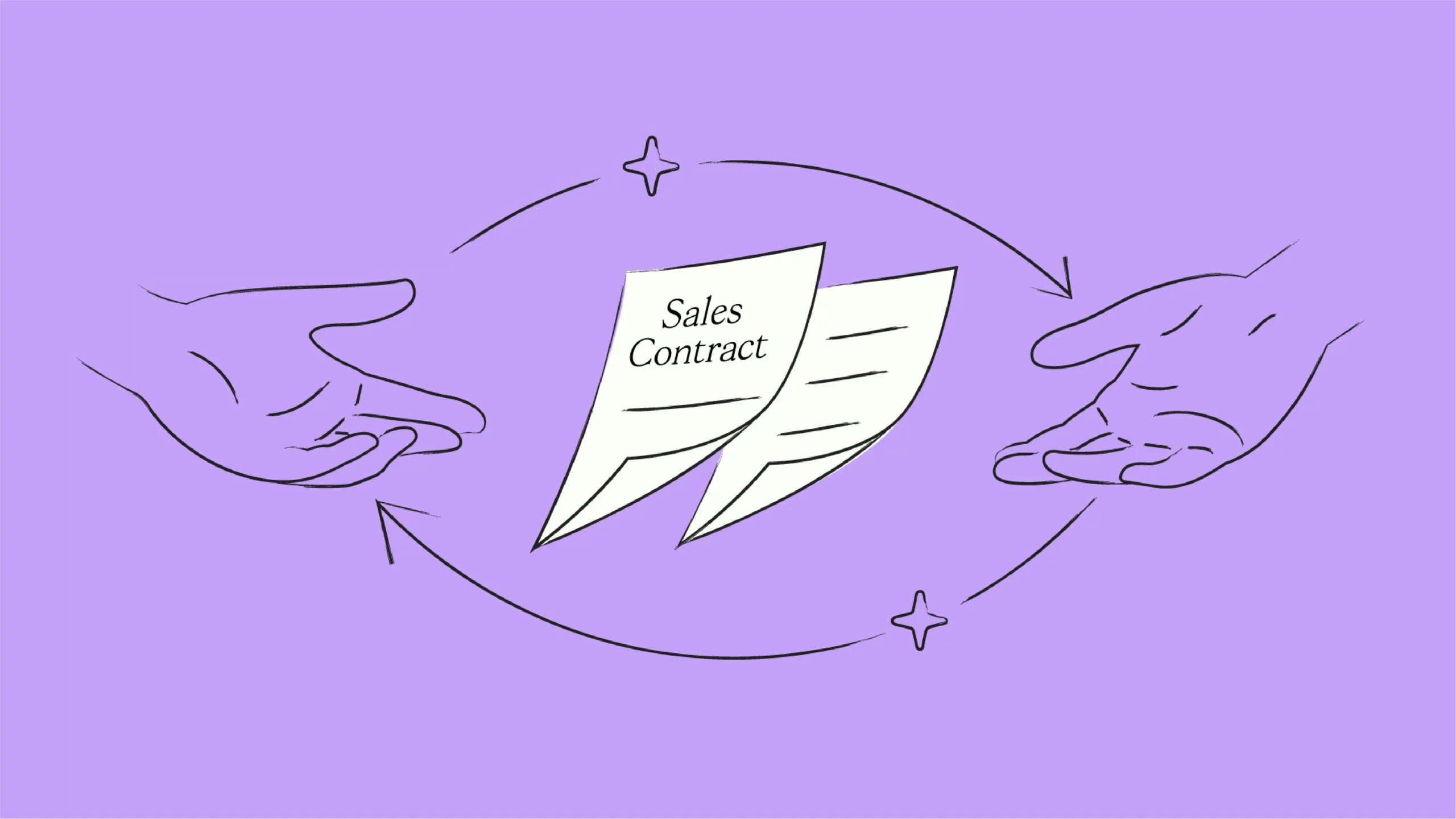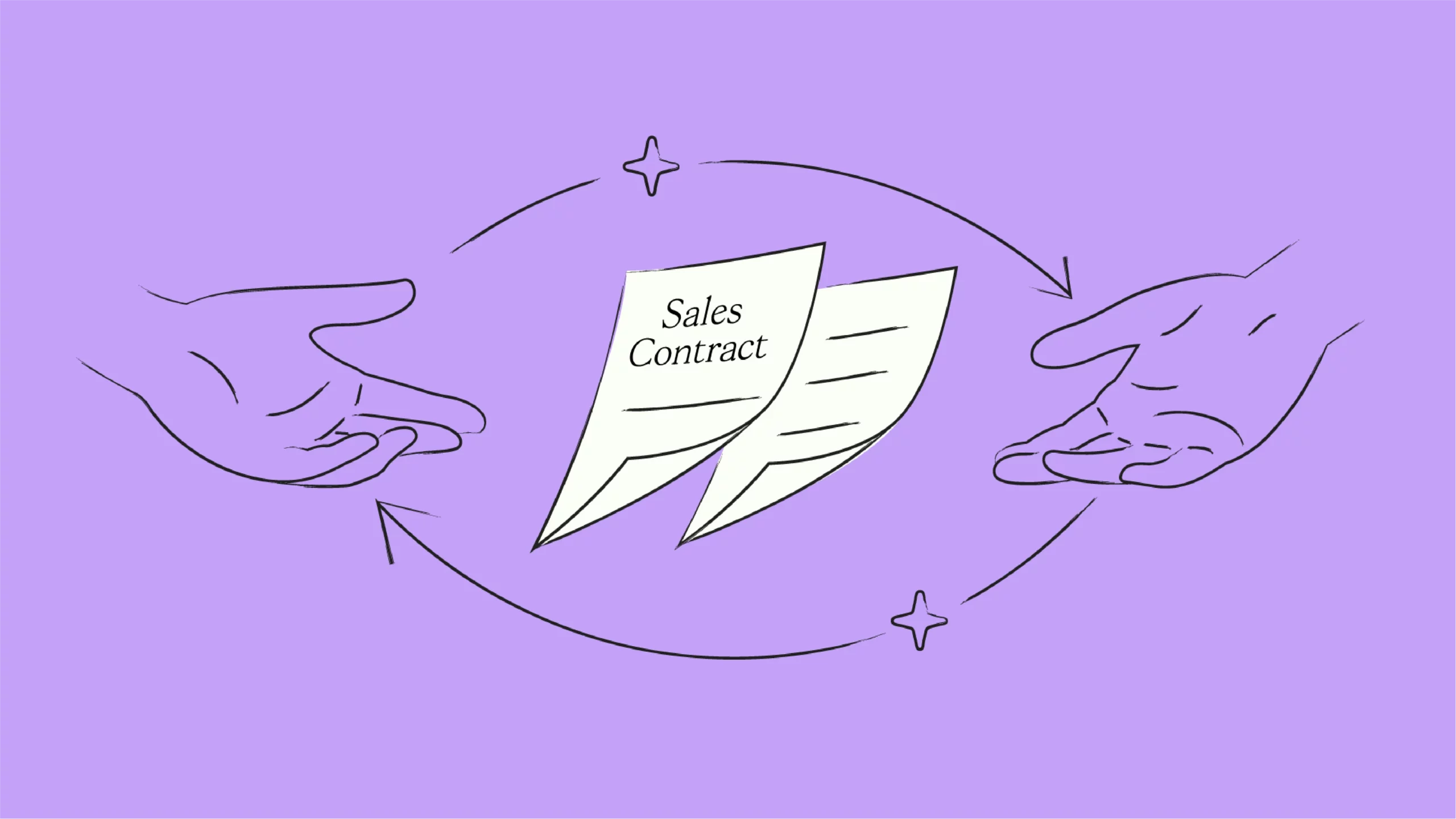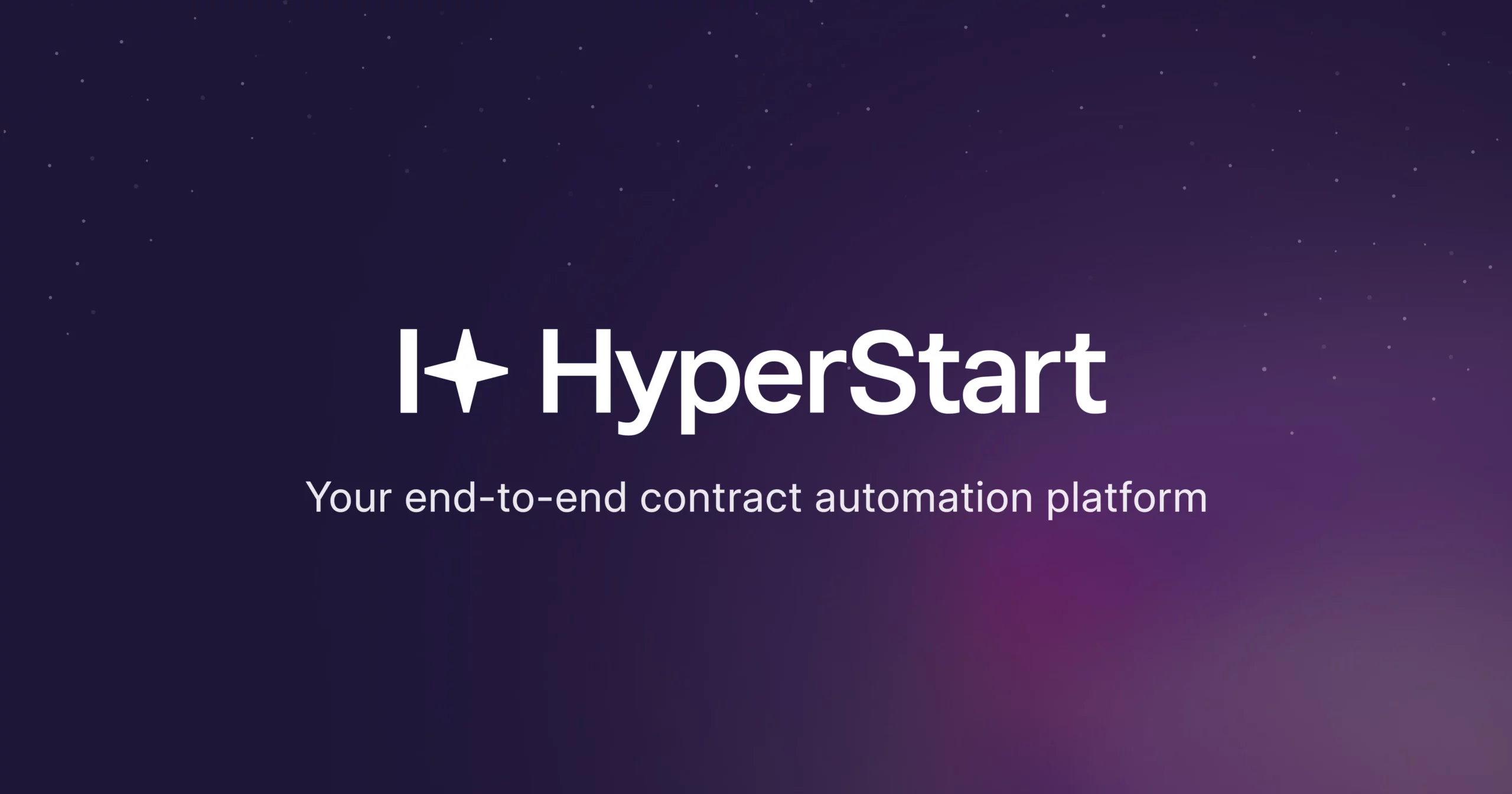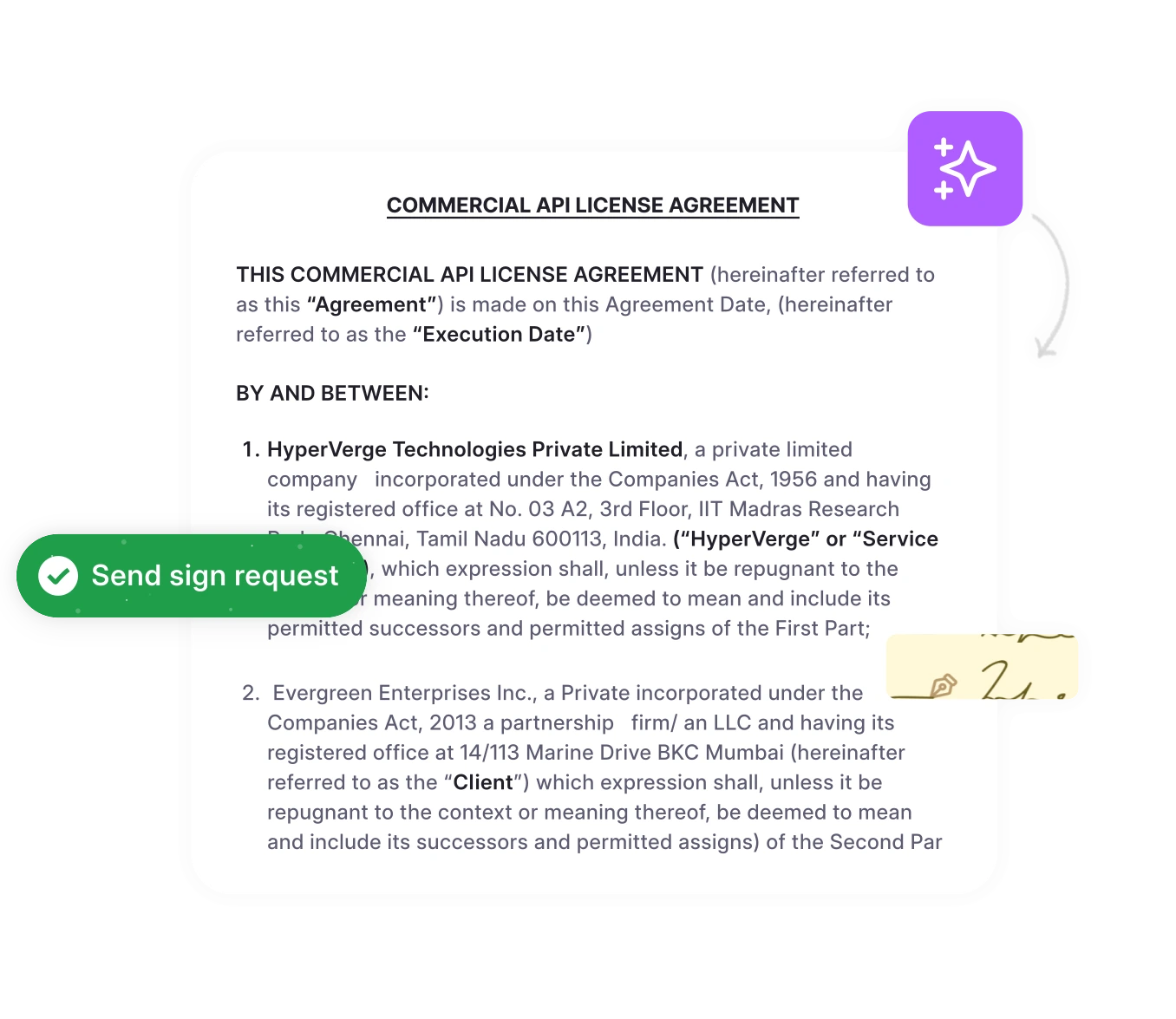Your sales team closes a major deal with a new client, but the process grinds to a halt due to lengthy contract negotiations and bottlenecks in the approval process. As a result, what should have been a swift and profitable transaction turns into a frustrating delay, risking the client’s confidence and your company’s revenue.
This scenario is all too common in many organizations. The challenge of managing sales contracts—ensuring they are accurate, compliant, and swiftly executed—can often become a roadblock to business success. With the increasing complexity of sales agreements and the need for speed in today’s market, leveraging sales contract management software is no longer optional. It’s essential.
That’s why we created this guide. We’ll break down the essentials, show you best practices, and give you actionable tips to streamline your contract management for sales teams.
By the end of this guide, you’ll be a contract management master, building stronger relationships with clients and boosting your revenue. Let’s tackle this together.
What is sales contract management?
Sales contract management is the systematic process of creating, executing, analyzing, and monitoring sales contracts. It involves managing all aspects of a sales contract from initial drafting to final execution to commitment, ensuring all contractual obligations are met and ensuring the organization can derive maximum value from the agreements.
Let’s talk about the different steps involved in a single sales contract.
Top 6 challenges of traditional sales contracting
Here’s a closer look at some of the most common hurdles faced in sales contract management:
1. Limited visibility into the status of contracts
One of the most significant challenges in traditional sales contracting is the lack of visibility into the contract portfolio. Contracts can be scattered across various locations—emails, personal computer folders, filing cabinets, or shared drives.
This fragmentation makes it difficult to locate specific documents when needed, such as the latest pricing agreement for a deal. For example, you might find the perfect customer only to discover that the agreed-upon price is buried in an old email chain. This lack of centralization can lead to confusion, missed opportunities, and inefficiencies in managing your sales agreements.
2. Manual processes are prone to errors
Traditional contract management often relies on manual contracting processes for approvals, revisions, and tracking deadlines, such as paper-based contracts, manual drafting, or outdated spreadsheets. These manual methods are not only time-consuming but also prone to human error.
Each step requires manual intervention, from drafting and reviewing to signing, storing, and staying on top of contractual obligations. This inefficiency can disrupt your sales cycles, leading to delayed deal closures, reduced productivity, and potential financial losses. Imagine waiting days or even weeks for a physical signature or approval on a contract. This delays your ability to move forward with the sale and respond to other market opportunities, ultimately hindering the momentum of your sales cycles.
3. Difficulty in monitoring changes and updates in-laws
Managing traditional contracts makes ensuring compliance with ever-changing regulations and company policies daunting. Each contract must adhere to various legal and regulatory requirements, varying by industry, region, and specific business agreements. Failure to maintain compliance can lead to severe consequences, including hefty fines, reputational damage, and legal liabilities. Keeping track of all these requirements manually is challenging and increases the risk of non-compliance, especially when regulation updates occur frequently.
4. Risk of mistakes
Manual data entry and reliance on memory for critical contract dates and obligations can result in significant errors. Common mistakes include missed deadlines, forgotten renewal dates, and overlooked contractual obligations. These errors can have serious consequences, such as financial penalties, lost revenue, and damaged business relationships. For instance, if a key contract renewal date is missed, you might lose a valuable client or fail to renegotiate more favorable terms, impacting your bottom line.
5. Lost value
Without proper oversight and management, the full potential value of contracts can go unrealized. Traditional methods make it easy to miss opportunities for renegotiation, claiming service credits, or identifying cost-saving measures within your client data. This lack of proactive contract management means that organizations may not fully leverage the terms and benefits outlined in their contracts. For example, you might miss the window to renegotiate a more favorable rate or fail to claim credits for services not delivered as promised, resulting in lost revenue and increased costs.
6. Slow turnaround times
In traditional sales contracting, the entire process from negotiation to finalization can be slow due to various factors, such as manual drafting, lengthy approval processes, delays in document exchange, and derailers in getting through the right stakeholders at the right time. This impacts the organization’s ability to generate revenue from new deals or renewals. It also affects customer satisfaction, as delays in finalizing contracts can lead to frustration and potentially lost business opportunities.
Moreover, slow contract processing may hinder the organization’s agility in responding to market changes or customer demands. Improving turnaround times through streamlined processes and automation is crucial for enhancing time-to-revenue and maintaining high customer satisfaction.
So how do we solve these challenges? Let’s find the answer.
Transform Your Sales Contracts with HyperStart CLM
Say goodbye to bottlenecks and delays in your sales process. HyperStart CLM empowers your team with automated contract workflows, real-time collaboration, and AI-driven insights. Ready to close deals faster?
How CLM solutions help sales teams
Optimizing your sales contract management process involves implementing contract management software that facilitates contract lifecycle management (CLM).
CLM oversees every stage of a contract’s journey—from its inception at the proposal stage to its execution, ongoing performance monitoring, and eventual renewal or expiry.
Here are key ways CLM solutions provide benefits:
1. Improved visibility and access
According to the World Commerce and Contracting Benchmark Report, 47% of users have implemented tools and software solutions to monitor contract reviews and approval status. These tools give organizations better visibility into contractual processes.
CLM solutions like HyperStart CLM provide a centralized digital repository for all contracts, making it easy for sales reps to store, search, and retrieve contract documents. This eliminates the issue of scattered contracts across various locations, ensuring that the latest and most relevant contract versions are always accessible.
Example: Sales teams can quickly find and refer to the latest pricing agreements, terms, and conditions stored within the client data accessible through the CRM integration, without digging through emails or paper files, reducing the time spent searching for information.
2. Streamlined processes
CLM solutions automate many manual processes involved in contract management, such as approvals, revisions, and tracking deadlines. Automated workflows ensure that contracts move swiftly through the review and approval stages, reducing delays and minimizing the risk of human error.
Example: An automated approval workflow can route a contract to the appropriate stakeholders for review and approval, notifying each person when their input is needed and tracking the status of the approval process in real-time.
3. Enhanced compliance
CLM solutions act as a safety net, helping ensure that all contracts adhere to relevant legal and regulatory requirements. Built-in compliance checks and automated alerts for regulatory changes empower sales teams to proactively address potential compliance issues and avoid costly legal problems down the road.
Example: A CLM system can automatically update contract templates to reflect new regulatory requirements, ensuring that all new contracts are compliant without manual intervention.
4. Reduced risk of errors
Human error is a constant threat in manual contract management. CLM software helps mitigate this risk by allowing you to standardize contract templates and leverage pre-approved clauses that ensure adherence to your company standards and legal requirements. This consistency reduces the risk of missed obligations or legal disputes that can cost you time and money.
Example: Automated reminders for contract renewals and key milestone dates ensure that you never miss an important deadline, preventing lost revenue and maintaining good customer relationships.
5. Optimized contract value
CLM solutions provide insights and analytics that help sales teams identify opportunities for renegotiation, cost savings, and performance improvements. This ensures that the organization maximizes the value of its contracts.
Example: Analytics dashboards can highlight underperforming contracts or identify trends that suggest it’s time to renegotiate terms, enabling sales teams to manage their contract portfolio proactively for maximum benefit.
6. Faster deal closures
Stop waiting for legal sign-off on routine contract clauses. CLM software allows you to pre-approve standardized clauses, enabling automatic approval workflows. This frees up your valuable legal team’s time, focusing on complex negotiations, and ensures your contracts get signed without compromising compliance. And your KPIs were met in a good time. For instance, standard payment terms or boilerplate language commonly found in sales agreements can be pre-approved, eliminating the need for legal review each time a new agreement is drafted.
Example: E-signature integrations within CLM solutions allow contracts to be signed and executed electronically, significantly reducing the time it takes to finalize agreements and eliminating the need for physical signatures.
7. Shorten negotiation cycles
CLM software like HyperStart CLM offers real-time collaboration tools that allow you to securely share contracts, propose edits, and track revisions within the platform. Imagine a virtual negotiation table where both parties can see the latest version, suggest changes, and comment simultaneously. This eliminates the confusion and delays caused by email threads with multiple versions floating around.
Example: Both parties can simultaneously review and negotiate contract terms in real-time, leading to quicker agreement finalizations and reduced negotiation cycles.
8. Never miss a deadline again
CLM software sets automated reminders for key contract milestones and obligations, including expiration dates and performance reviews. This ensures a great customer retention engine and a smooth post-sales experience for you and your customers. Proactive management with CLM software demonstrates professionalism, builds trust with your clients, and saves new customer acquisition costs.
Example: Automated notifications for contract renewals, performance reviews, and other critical dates help ensure no missed deadlines, maintaining good client relationships.
Complex terms and lengthy negotiations shouldn’t delay your sales deals
Experience how HyperStart CLM simplifies contract management, accelerates negotiations, and enhances deal closures.
Key features of CLM solutions for sales contract management
We’ve established that contract lifecycle management is the key to a smooth-running sales contract process. Now let’s understand CLM features and how they help in faster deal closures. Here are some key features:
| Feature | Description |
| Contract Creation | Drafting an initial legally binding agreement that outlines the rights and responsibilities of involved parties. This feature even includes automated contract drafting, ensuring accuracy and efficiency in the creation process. |
| Clause Library | Automated generation of accurate and compliant contracts using predefined templates and clauses. |
| Workflow Automation | Set up automated workflows that route contracts to the right people (legal, finance) for a quick review and e-signature. |
| Audit Trails | Detailed logs of actions taken on contracts for transparency and accountability. |
| Redlining and Negotiation | Track changes, suggest edits, and manage different contract versions electronically. Negotiate terms with both customers and internal stakeholders. |
| E-signature Integration | Integration with electronic signature platforms for fast and secure signing. |
| Centralized Repository | Secure storage for easy search, retrieval, and management of all sales contracts. |
| Compliance and Risk Management | Ensures compliance with regulatory requirements and internal policies and helps identify and mitigate risks. |
| Reporting and Analytics | Dashboards and tools for insights into contract performance, tracking key metrics. |
| Alerts and Notifications | Automated alerts for key dates, milestones, and renewals to avoid missing critical deadlines. |
| Integration with CRM and ERP Systems | Synchronizes data with CRM and ERP systems for streamlined operations and unified customer and contract information. |
| Obligation Tracking | Efficient management of renewals, extensions, and terminations to maintain customer relationships. |
Managing sales contracts with HyperStart CLM
HyperStart CLM eliminates the pain of paperwork, transforming your physical contract chaos into a centralized, secure digital contract repository. This empowers sales teams to focus on closing deals and achieving their sales targets. Leveraging AI and automation, HyperStart CLM simplifies and accelerates the entire contract lifecycle, from creation to renewal.
Furthermore, HyperStart CLM empowers sales teams through self-service workflows and AI-powered automation. This translates to error-free contract creation using pre-approved templates, readily accessible within your existing CRM platform. With HyperStart CLM, you no longer need to rely on legal or other departments for contract generation, allowing you to move deals forward with greater agility and speed.
Additionally, with its innovative AI-powered renewal tracking, HyperStart CLM tackles the risk of missed contract renewals, which can lead to lost revenue and customer churn. The system automatically identifies key dates within your contracts and triggers timely reminders, ensuring you never miss an opportunity to solidify a valuable client relationship.
HyperStart CLM fosters effective collaboration for complex contract negotiations by providing real-time contract status updates and utilizing AI-powered “redlining” for expedited revisions. This enables you to identify roadblocks, unblock bottlenecks, and obtain approval on revised versions faster.
Contact our HyperStart CLM specialists to discuss your needs or schedule a free demo to experience the platform firsthand.
Ready to Transform Your Contract Management Process?
With HyperStart CLM, you can improve your contract review and signing speed by 5x and close deals faster. Transform your contract lifecycle with us and focus on what matters.












